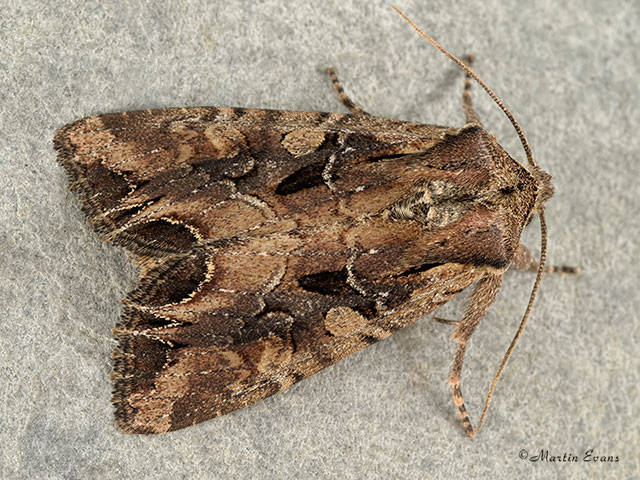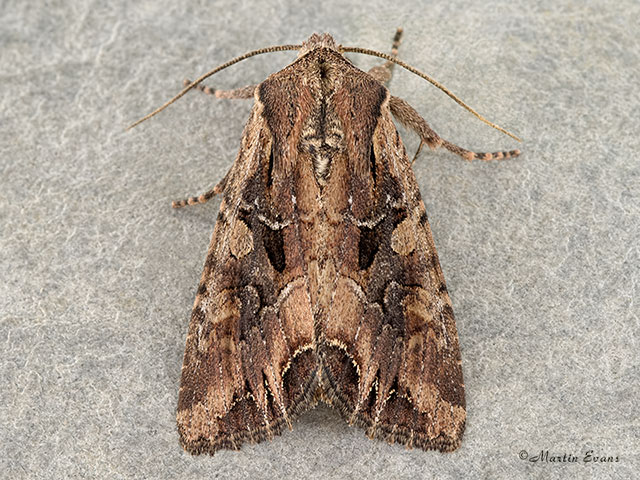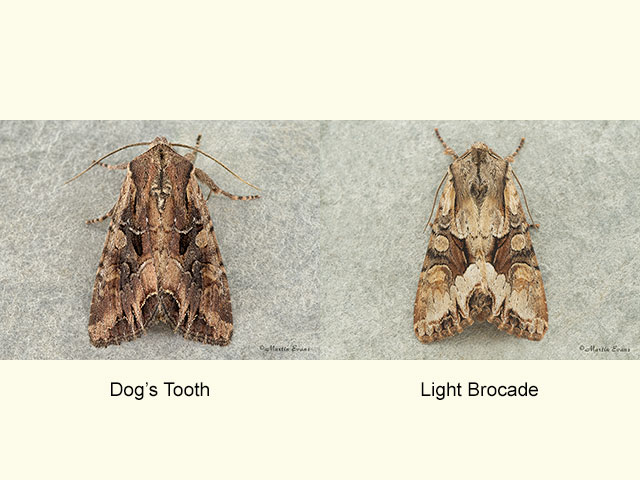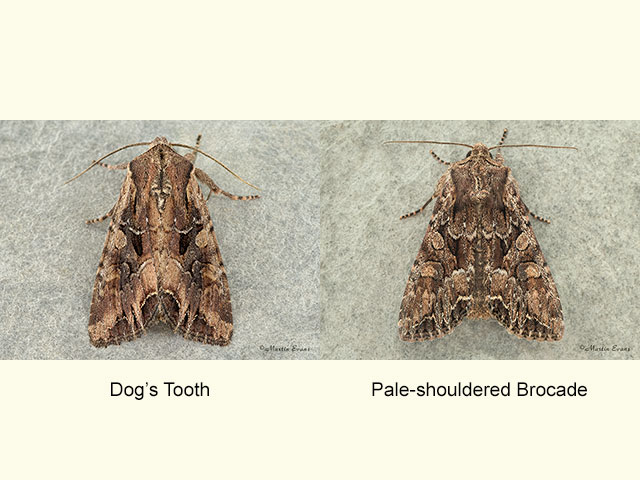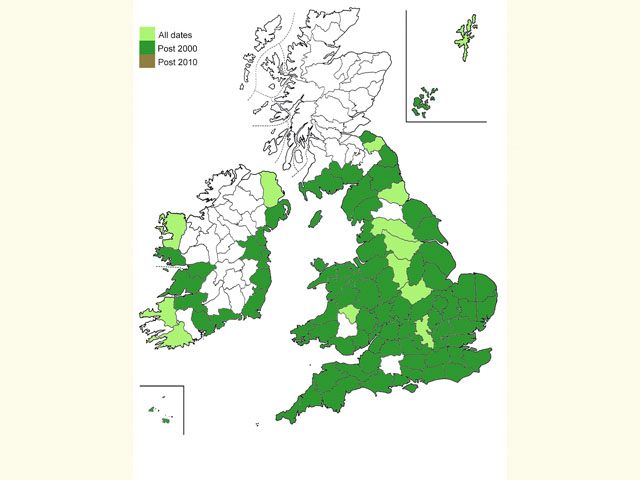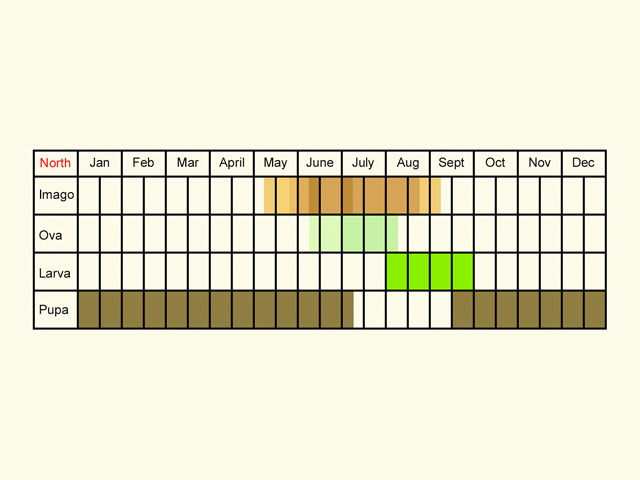Noctuidae
73.266 Dog's Tooth Lacanobia suasa ([Denis & Schiffermüller], 1775)
Local
Similar species: Light Brocade Lacanobia w-latinum has a lighter outer forewing and trailing basal area. It lacks the distinct dark tooth-like marking in the centre of the forewing. Pale-shouldered Brocade Lacanobia thalassina lacks the distinct dark tooth in the central area of the forewing and the smooth curve from the trailing corner to the "W" in the outer cross-line which merges into the fringe. The dull brown form of Dog's Tooth is superficially similar to Bright-line Brown-eye Lacanobia oleracea which has brighter colours, especially the kidney mark which contains an orange marking.
Forewing: 15 to 20mm
Habitats: Saltmarsh, coastal grassland, river valley marshland, occasionally drier arable margins and wasteground.
Habits: The moth feeds at flowers and is attracted to sugar and light.
Foodplant: The larva feeds nocturnally on goosefoots, Greater Plantain, docks, Dandelion, Knotgrass, Common Sea Lavender and other low growing plants. It pupates in a cocoon under the soil.
On the European mainland it has also been recorded feeding on oraches, lettuces, clovers and melilots.
